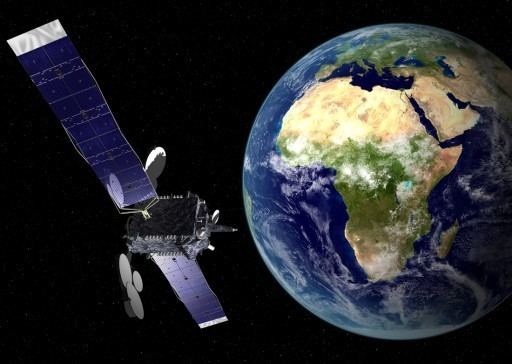
Connected autonomous vehicles (CAVs) will rely on fast and high capacity data networks to operate properly, streaming information both to and from infrastructure, online cloud services and other vehicles. In towns and cities, this may not be a problem, but even in the UK rural areas are prone to regions of poor mobile data coverage, as anybody who has attempted to drive around the countryside listening to digital radio or using satnav will know only too well. The new partnership between the government space agency and mobile communications giant O2 aims to tackle this potential problem by building and testing seamless high-speed data connections.
According to O2’s research, CAVs are expected to generate 4TB per hour of data, which will be challenging to handle. With the Department of Business, Energy and Industrial Strategy (BEIS) claiming development autonomous vehicles a keystone of UK strategy and investing £120m in CAVs since 2014, business secretary Greg Clark said that the partnership between UKSA and O2 “will build on our world leading reputation in the development and manufacture of satellites even further, to bring together two of the UK’s great strengths – automotive and space, putting us at the forefront of the next generation of self-driving cars of tomorrow.”
UKSA’s director of growth, Catherine Mealing-Jones, stressed that addressing gaps in mobile coverage is a vital part of meeting that goal. “Autonomous vehicles require robust high-speed mobile data connections to operate effectively, so building the technology to link autonomous vehicles to telecoms satellites means that you will be able to take your car wherever you want to go.”
Project Darwin will be based at the Harwell Science and Innovation Campus in Oxfordshire, and is co-funded through UKSA’s investment in the European Space Agency’s programme of advanced research in telecommunication systems (ARTES). The partners include Oxford and Glasgow universities, O2 Telefonica, Hispasat (a Spanish satellite operator) and Oxford-based company Darwin Innovation Group, whose co-founder Daniela Petrovic commented: “Our aim is that mobility as a service developed by Project Darwin will benefit society in multiple ways: by creating new apprenticeships in this developing area, informing policies and regulations related to CAVs, and creating a new industry vertical.”
Stephan von Delft of Glasgow University's Adam Smith Business School expanded on the latter point, explaining “new business models for 5G connected ecosystems will not emerge fully formed. Firms must therefore systematically explore, test and adapt new business models as conditions change.”
As a first stage, Darwin Innovation Group is developing an ARTES Partner Study with UK support, which will cost £2m in its first phase, to define all the different elements needed to deliver the larger programme.
“The research taking place the Harwell during the next four years will be vital in the creation of new transport ecosystems for the UK public and companies that will offer the services," said Derek McManus, O2 chief operating officer. "Our approach to this project is part of our wider strategy to collaborate with British businesses, partners and start-ups to unlock the possibilities of 5G for customers and wider UK economy.”




Project to investigate hybrid approach to titanium manufacturing
What is this a hybrid of? Superplastic forming tends to be performed slowly as otherwise the behaviour is the hot creep that typifies hot...